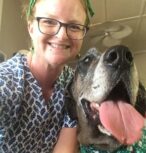DNA reveals the past and future of coral reefs
New DNA techniques are being used to understand how coral reacted to the end of the last ice age in order to better predict how they will cope with current changes to the climate. James Cook Univer

From 2005 to 2022, the main node of the ARC Centre of Excellence for Coral Reef Studies was headquartered at James Cook University in Townsville, Queensland (Australia)








Abstract: Shallow-water tropical seascapes typically include a range of habitat types such as coral reefs, mangroves, macroalgal and seagrass beds. These habitats can occur in close proximity and are interconnected, yet they are often studied as discrete entities. While some species of coral reef fishes are known to use multiple habitat types during their lifecycle, we still know very little about the extent of non-reef habitat use among reef fishes and how the spatial patterning of seascapes might influence fish-habitat relationships or ecological processes on reefs. My thesis examines the use of tropical seascapes by reef-associated fishes through a global synthesis, and field studies in Kavieng, Papua New Guinea. Results from both the global synthesis and field based research in Papua New Guinea show that non-reef habitat use by reef fishes is common and widespread. A multiscale analysis of fish assemblages within shallow seagrass beds revealed that for 62% of taxa examined, the surrounding seascape had a greater influence on distribution patterns than within-habitat variables. Finally, I examine how the surrounding seascape influences a key ecological process (i.e., macroalgae browsing) in shallow reef habitats. Overall my thesis highlights the need to broaden our horizons beyond a habitat or patch-centric approach and incorporate a wider seascape perspective when investigating patterns and processes within coral reef seascapes.
Biography: Katie hails from the UK and began diving as soon as she was able, spending many happy but rather cold weekends exploring the underwater seascapes of the UK south coast. Katie completed a BSc in Marine Biology & Zoology at Bangor University, Wales in 2013, and, thanks to an Australian Government Endeavour Scholarship, fulfilled a lifelong dream to complete an MSc in Marine Biology & Ecology at James Cook University. She enjoyed the experience so much, she decided to stick around a little longer and embark on a PhD. During her time in academia so far, she has worked on a broad range of topics including non-native species, coral recovery, coral spawning, edge effects and the impacts of habitat loss and fragmentation on reef fish communities. For her PhD project, Katie has been investigating how the seascape structure surrounding reefs can influence fish communities and ecological processes on reefs, under the supervision of Professor Andrew Hoey, Professor Serge Andréfouët, Dr Mary Bonin, Professor Graeme Cumming and Dr Stephanie Duce.
New DNA techniques are being used to understand how coral reacted to the end of the last ice age in order to better predict how they will cope with current changes to the climate. James Cook Univer
A new study on the effects of climate change in five tropical countries has found fisheries are in more trouble than agriculture, and poor people are in the most danger. Distinguished Profess
James Cook University researchers have found brightly coloured fish are becoming increasingly rare as coral declines, with the phenomenon likely to get worse in the future. Christopher Hemingson, a
Researchers working with stakeholders in the Great Barrier Reef region have come up with ideas on how groups responsible for looking after the reef can operate more effectively when the next bleaching
Abstract: As marine species adapt to climate change, their heat tolerance will likely be under strong selection. Individual variation in heat tolerance and its heritability underpin the potential fo
Abstract: The Reef Ecology Lab in KAUST’s Red Sea Research Center explores many aspects of movement ecology of marine organisms, ranging from adult migrations to intergenerational larval dispersal
Abstract: Macroalgal meadows are a prominent, yet often maligned component of the tropical seascape. Our work at Ningaloo reef in WA demonstrate that canopy forming macroalgae provide habitat for ad
Abstract: Sharks are generally perceived as strong and fearsome animals. With fossils dating back at least 420 million years, sharks are not only majestic top predators but they also outlived dinosa
Abstract: Connectivity plays a vital role in many ecosystems through its effects on fundamental ecological and evolutionary processes. Its consequences for populations and metapopulations have been
Abstract: Evolution of many eukaryotic organisms is affected by interactions with microbes. Microbial symbioses can ultimately reflect host’s diet, habitat range, and even body shape. However, how
Abstract: The past few years have seen unprecedented coral bleaching and mortality on the Great Barrier Reef (GBR) but the consequences of this on biodiversity are not yet known. This talk will expl